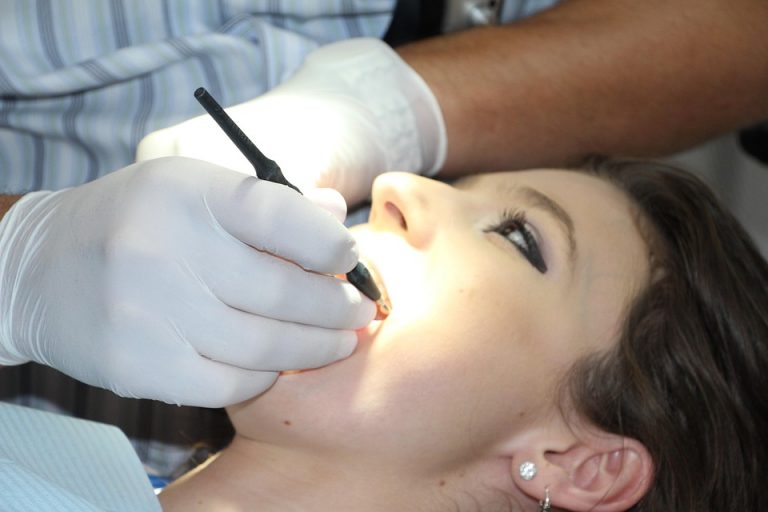Holistic pet care means treating your animal as a complete being — body, mind, and environment — not a collection of symptoms. It’s an approach that blends nutrition, preventive medicine, natural therapies, movement, mental enrichment, and the simple art of paying attention. If you love your pet, this matters because it keeps them thriving longer and makes your life together richer and calmer.
I’ve seen a hundred pets come through rooms where people were exhausted and worried. The pets that respond best are the ones whose people chose consistent, thoughtful care — not quick fixes. That thoughtful approach is what holistic pet care gives you: fewer emergencies, better behavior, and a sense of joy when you look at your companion.
Contents
- Holistic Pet Care: What It Looks Like
- 1. Nutrition That Heals
- 2. Movement And Functional Fitness
- 3. Mental Enrichment And Emotional Health
- 4. Preventive Veterinary Care With a Holistic Lens
- 5. Natural Therapies With Scientific Backing
- 6. Home Environment And Daily Routines
- 7. Owner Education And Relationship-Based Care
- How To Start Today
- Bottom Line
- FAQ
Holistic Pet Care: What It Looks Like
Holistic pet care is practical. It is not mystical. It’s the vet who listens, the nutrition plan that fits, the exercise routine that excites, and the calm bedroom that helps digestion. It connects modern veterinary science with time-tested therapies and real-life routines that support long-term health.
What follows are seven clear, actionable ways to adopt holistic pet care that actually work — backed by medical research, practical clinics, and the lived experience of pet owners.
1. Nutrition That Heals
Food is the foundation. The right diet reduces inflammation, supports immunity, and stabilizes behavior.
Switching to a species-appropriate diet or tailoring food to underlying conditions can change everything. Studies from veterinary nutritionists show improved coat quality, less itching, and fewer gastrointestinal upsets when diets are matched to the animal’s needs.
Practical steps:
- Pick whole-food ingredients and avoid fillers and artificial additives.
- Work with your veterinarian or a board-certified veterinary nutritionist to eliminate allergies or sensitivities.
- Add targeted supplements like omega-3s for inflammation and joint support.
When you feed with intention, you cut down illnesses and vet visits. That’s time, money, and heart you get back.
2. Movement And Functional Fitness
Pets need motion that strengthens, not just tires them out. Movement builds muscles, protects joints, and sharpens cognition.
Think beyond walks. Strength exercises, balance work, and play that makes the brain work are all part of holistic pet care. Veterinary rehabilitation programs and canine conditioning coaches offer structured plans backed by evidence showing improved mobility and slower progression of degenerative conditions.
Easy wins:
- Short interval training with hills or stairs for endurance.
- Balance discs or slow-feeder puzzles for core work.
- Swimming for low-impact joint health when the vet approves.
Your pet moves better, sleeps deeper, and recovers faster. You’ll notice more spring in their step — and more laughter in your house.
3. Mental Enrichment And Emotional Health
Health isn’t just physical. Anxiety, boredom, and frustration create real disease. Enrichment reduces destructive behaviors and stress hormones.
Use scent work, puzzle feeders, training sessions, and new environments to keep your pet curious and engaged. Behaviorists and animal psychologists consistently report that structured enrichment reduces anxiety-related behaviors and improves learning.
Try this:
- Rotate toys weekly to keep novelty.
- Teach new tricks in short, joyful sessions.
- Offer safe sniffing walks; scent work is mental exercise and confidence building.
A calm mind equals a healthier body. Holistic pet care treats the emotions as the beginning of prevention, not the end.
4. Preventive Veterinary Care With a Holistic Lens
Preventive care is more than shots and checkups. It’s collaborative planning that includes screening, lifestyle advice, and personalized care.
Integrative veterinarians combine diagnostics with lifestyle interventions and, when appropriate, complementary therapies. Research from university veterinary programs supports combining conventional and evidence-based complementary treatments to manage chronic pain, allergies, and mobility issues.
What to ask your vet:
- Can we create a yearly health plan tailored to my pet’s life stage?
- Which preventive screenings will catch disease early?
- Should we consider integrative therapies alongside medication?
An informed plan avoids crises. It finds problems when they’re easiest to fix.
5. Natural Therapies With Scientific Backing
Herbs, acupuncture, massage, and targeted supplements have evidence for helping conditions like arthritis, gastrointestinal trouble, and anxiety.
Acupuncture reduces pain and improves function in many animals, and massage therapy enhances circulation and mobility. Peer-reviewed studies and veterinary hospitals report measurable benefits when these therapies are used appropriately.
Use caution and best practices:
- Work with certified veterinary acupuncturists or clinicians.
- Choose supplements with third-party testing and clear dosing.
- Combine, don’t replace, conventional care when dealing with serious disease.
Natural doesn’t mean guesswork. It means informed, safe choices that complement the rest of your pet’s care.
6. Home Environment And Daily Routines
Your home is the health care center. Clean air, comfortable bedding, routine, and low-toxicity cleaning products make a huge difference.
Environmental management reduces allergens and stress. Simple things like non-slip rugs for senior pets, quiet sleeping areas, and a predictable daily routine reduce anxiety and physical strain.
Small changes that matter:
- Use HEPA filters to reduce airborne irritants.
- Create warm, soft sleeping spots for joints.
- Maintain a consistent feeding and exercise schedule.
A little design thinking in your home equals fewer flare-ups and more peaceful days.
7. Owner Education And Relationship-Based Care
The best outcomes come when you’re confident and connected. Knowledge, not fear, is your ally.
Holistic pet care depends on a relationship — between you, your pet, and your veterinary team. Education empowers you to spot early changes, choose appropriate therapies, and make decisions that align with your values and your pet’s needs.
Practical moves:
- Keep a health journal: appetite, energy, stool, behavior.
- Ask for clear explanations and evidence when new treatments are proposed.
- Join reputable training classes and support groups for shared learning.
When you know what to watch for, you catch trouble early and keep your pet thriving.
How To Start Today
Begin with one change. Maybe swap to a higher-quality diet. Maybe add ten minutes of structured play or enroll in a scent-work class. Small, consistent actions compound.
Make an appointment with an integrative-minded veterinarian and ask for a personalized plan. Request objective measures — blood work, mobility assessment, or behavior evaluation — so you have a baseline.
Holistic pet care is not a fad. It’s a system that reduces suffering and deepens joy. And it’s within reach for anyone willing to take small, steady steps.
Bottom Line
Holistic pet care brings science, compassion, and everyday sense together. It lowers chronic disease, improves behavior, and deepens the bond between you and your companion. Start with food, movement, mental work, preventive planning, and a safer home. Learn. Ask questions. Trust good evidence. Your pet will show you the difference in the way they run, rest, and greet you at the door.
Be bold for your pet. Keep learning. Keep loving.
FAQ
What Is Holistic Pet Care And How Is It Different From Regular Care?
Holistic pet care combines conventional veterinary medicine with nutrition, behavior, natural therapies, and environmental strategies to treat the whole animal rather than isolated symptoms. It emphasizes prevention, individualized plans, and therapies that support long-term health.
Can Natural Therapies Replace Veterinary Medicine?
No. Natural therapies are best used to complement, not replace, evidence-based veterinary care, especially for serious conditions. Work with your veterinarian to integrate safe, effective therapies.
How Do I Find A Qualified Holistic Veterinarian?
Look for veterinarians with additional training in integrative medicine, acupuncture, or nutrition, and ask for credentials. University veterinary hospitals and professional associations list certified practitioners and evidence-based protocols.
Is Holistic Care More Expensive?
Initially, some aspects may cost more, but preventing chronic disease and reducing emergency visits often lowers lifetime costs. Think of it as investing in years of happier, healthier life together.
A visual line separates this content from the references and closing paragraph. Thank you for caring deeply — your pet’s best life begins with your attention and choices.
References
The American Veterinary Medical Association provides guidance on integrative and complementary veterinary care and includes clinical resources for pet owners (http://www.avma.org).
The National Institutes of Health’s National Center for Complementary and Integrative Health offers research summaries on acupuncture and herbal therapies relevant to veterinary and human medicine (http://www.ncbi.nlm.nih.gov).
Cornell University College of Veterinary Medicine publishes pet health and nutrition resources that discuss preventive care, diet, and integrative approaches for companion animals (http://www.vet.cornell.edu).
The American Animal Hospital Association provides evidence-based guidelines on preventive care and nutrition for dogs and cats (http://www.aahanet.org).
The Journal of the American Veterinary Medical Association features peer-reviewed research on rehabilitation, acupuncture, and multimodal pain management for pets (http://avmajournals.avma.org).








